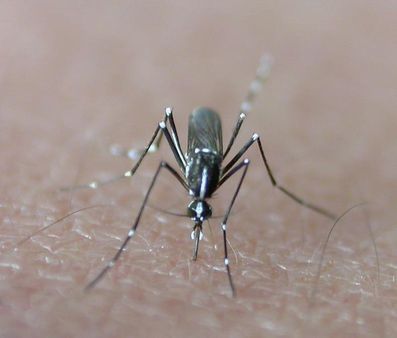Malaria is an unpleasant and potentially lethal disease caused by a parasite carried by certain varieties of mosquito. With more people from Britain travelling to exotic hot spots, it is very important that you take precautions against malaria. Statistics show that around 1,500 people come back to the UK from their holidays with malaria every year.
Causes and symptoms
Malaria causes
There are five parasites of the type called plasmodium each causing a different type of malaria, which are carried by the female anopheles mosquito. The most dangerous is 'plasmodium falciparum', which causes most of the malaria deaths in the world and is mainly found in Africa. Travellers should also be aware of 'plasmodium vivax' which is found in Latin American and many parts of Asia. Once a mosquito has bitten an infected person, it will then carry the malaria parasite which it will pass on to you if it bites you.The parasite heads for your liver, and from there, into your bloodstream where it multiplies constantly.
Symptoms of malaria
Depending on which parasite you have been infected with, symptoms will appear between eight and fifteen days after you have been bitten. With some varieties, symptoms may not appear for up to a year. The main symptoms are a very high fever (38º C or above), repeated episodes of chills and then sweats, muscle pain, bad headache and in certain cases diarrhoea. The falciparum malaria is the most dangerous one, developing rapidly and leading to shock, liver failure and possibly cerebral malaria. Urgent treatment is required or you may die.
Diagnosis and treatment
Malaria diagnosis
If you are abroad and start to develop symptoms, which may be malaria, go immediately to the nearest doctor or hospital. If you begin to feel ill after you get home, go straight to your GP. Tell the doctor where you have been travelling and what anti-malarial precautions, if any, you have been taking. A blood test will be performed and if malaria is confirmed, treatment will be started immediately.
Prevention of malaria
If you plan to travel abroad, check if it is a malaria area. Take the correct anti-malarial medication. Some may have side-effects, but these are much better than catching malaria. Do everything you can to avoid getting bitten as the anti-malarials are not 100% effective. Stay somewhere that has proper air conditioning and screens on windows and doors or use mosquito nets. Wear long sleeved tops and trousers, especially in the early morning and at dusk and use DEET insect repellents.
Last word
Malaria is a potentially fatal disease, so make sure you are fully prepared before travelling. More information can be found on the NHS website.



